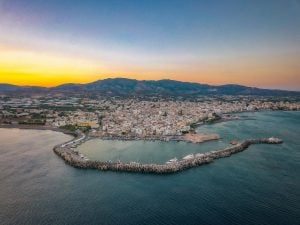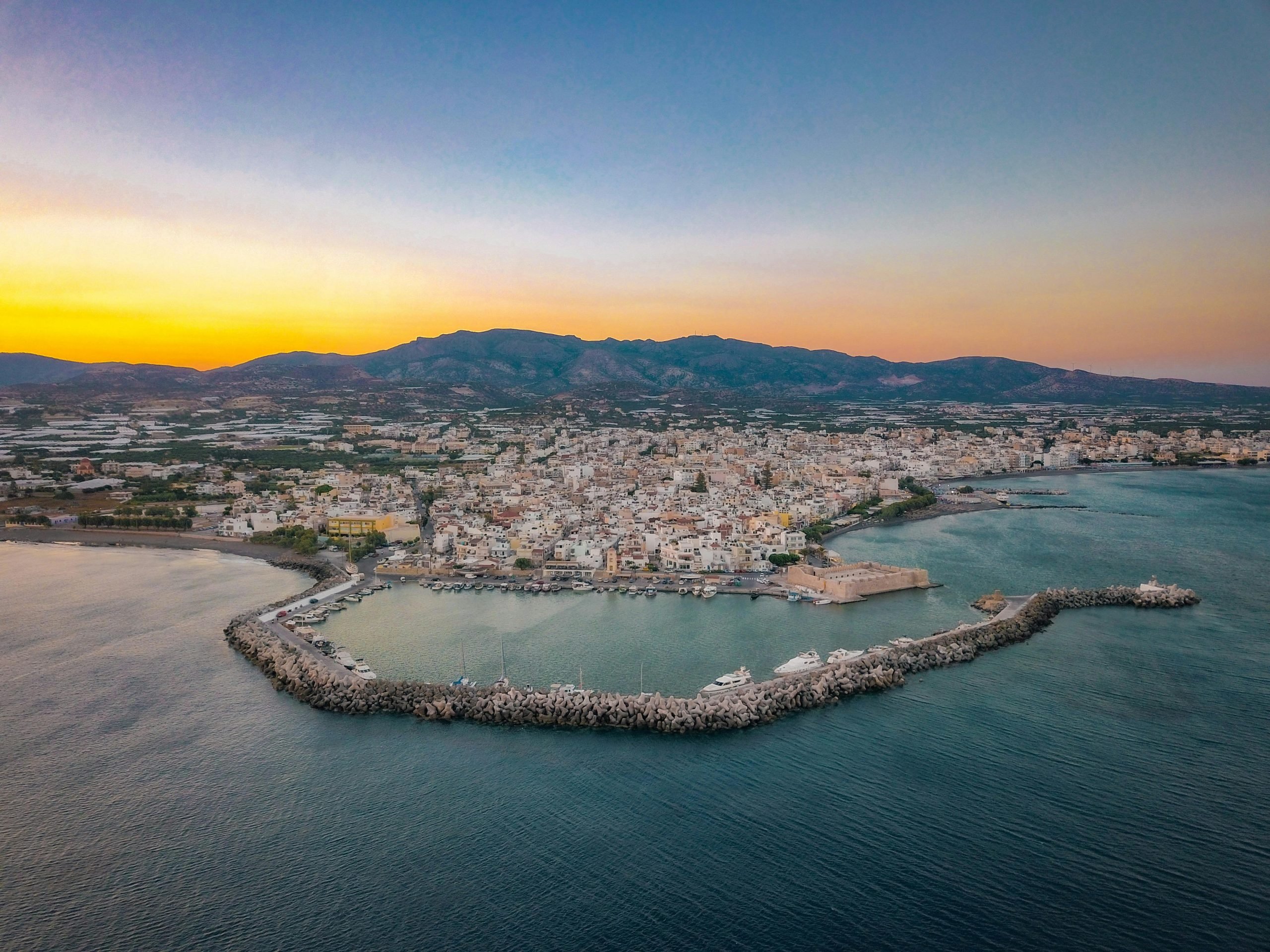Travelling from Athens to the historic Peloponnese peninsula raises important questions about transport connections that many property buyers and visitors need to understand. Whether you’re exploring investment opportunities in coastal towns like Nafplio or considering a Golden Visa property purchase, knowing your transport options can significantly impact your decision-making process. The Peloponnese, with its rich history, stunning coastlines, and growing appeal among international buyers, offers various accessibility options from Greece’s capital city.
This comprehensive guide explores current railway services, alternative transport methods, and crucial considerations for property buyers interested in this remarkable region. Understanding these transport links becomes particularly important when evaluating long-term property ownership and the practicalities of regular visits to your Greek investment.
Current train services from Athens to Peloponnese
The Greek railway system, operated by TrainOSE, provides limited but functional connections between Athens and certain destinations within the Peloponnese. The main railway line extends from Athens to Kiato, approximately 80 kilometres west of the capital, serving as the primary rail gateway to the peninsula.
From Athens’ main railway station, suburban trains operate regularly to Kiato, with journey times typically ranging between 90 minutes to two hours. These services run throughout the day, offering a reliable connection for the initial leg of your journey to the Peloponnese. However, the railway network within the peninsula itself remains quite restricted.
The most significant railway connection within the Peloponnese extends from Kiato to Patras, the region’s largest city and important port. This route serves several intermediate stations, including Aigio and other coastal towns along the northern shores of the peninsula. The total journey time from Athens to Patras via rail typically takes approximately three to four hours, depending on connection times.
It’s worth noting that Greece’s railway infrastructure has undergone various modernisation efforts, though services to many popular tourist and property investment destinations within the Peloponnese remain unavailable by train. Towns such as Nafplio, Kalamata, and the Mani Peninsula cannot be reached directly by rail, requiring alternative transport arrangements.
Alternative transportation options to reach Peloponnese
Given the limitations of rail transport, most visitors and property buyers rely on road-based alternatives to reach their Peloponnese destinations. Bus services, operated by KTEL, provide comprehensive coverage throughout the peninsula, connecting Athens to virtually every significant town and city.
The KTEL bus network offers regular services from Athens’ Kifissos Bus Terminal to major Peloponnese destinations. Journey times vary considerably depending on your final destination: Corinth can be reached in approximately 90 minutes, Nafplio in around 2.5 hours, and Kalamata in roughly 4.5 hours. These services generally operate multiple times daily, with increased frequency during peak tourist seasons.
Car rental represents another popular option, particularly for property buyers who need flexibility to visit multiple locations or inspect various properties. The drive from Athens to most Peloponnese destinations involves well-maintained motorways, with tolls applying to certain sections. Rental costs fluctuate based on season, vehicle type, and rental duration, but this option provides maximum flexibility for property viewings and exploration.
Private transfers and taxi services offer comfort and convenience, though costs can be substantially higher than public transport options. Many property buyers opt for private transfers when travelling with luggage or when visiting remote locations not well-served by public transport.
| Transport Method | Typical Journey Time to Nafplio | Advantages | Considerations |
|---|---|---|---|
| KTEL Bus | 2.5 hours | Cost-effective, regular services | Fixed schedules, limited luggage space |
| Car Rental | 2 hours | Flexibility, door-to-door travel | Driving requirements, parking considerations |
| Private Transfer | 2 hours | Comfort, direct service | Higher costs, advance booking required |
Why property buyers choose Peloponnese over other regions
The Peloponnese attracts international property buyers for numerous compelling reasons that extend beyond simple accessibility considerations. The region’s diverse landscape encompasses dramatic coastlines, mountainous interiors, and historically significant towns that offer both investment potential and lifestyle benefits.
Coastal properties along the Peloponnese shores often provide exceptional value compared to more established Greek island destinations. Towns like Nafplio, with its Venetian architecture and waterfront charm, attract buyers seeking both holiday homes and rental investment opportunities. The region’s beaches, from the organised resorts of the Argolic Gulf to the pristine stretches of the Mani Peninsula, offer diverse coastal experiences.
The Peloponnese also presents attractive opportunities for Golden Visa investors, with property prices often allowing for strategic investments that meet residency requirements whilst providing potential for capital appreciation. The region’s growing tourism infrastructure supports rental income prospects, particularly in historically significant locations and coastal areas.
Cultural richness represents another significant draw, with ancient sites such as Olympia, Mycenae, and Epidaurus providing permanent historical context for property ownership. This cultural heritage contributes to the region’s long-term appeal and tourism sustainability, factors that support property values over time.
The Peloponnese lifestyle appeals particularly to buyers seeking authentic Greek experiences away from overcrowded tourist centres. Local communities remain welcoming to international residents, whilst maintaining traditional Greek character and customs.
Transportation considerations when buying Peloponnese property
Property buyers must carefully evaluate accessibility factors when considering Peloponnese investments, as transport connections directly impact both personal enjoyment and rental potential. Proximity to Athens becomes particularly important for buyers who plan regular visits or need to maintain business connections in the capital.
Local transport infrastructure varies significantly across different areas of the Peloponnese. Coastal towns generally offer better bus connections and road access, whilst mountain villages may require private transport for practical daily living. Consider whether your chosen location provides adequate public transport for guests or tenants who might not have access to private vehicles.
Airport connectivity represents another crucial consideration, particularly for international owners. The Peloponnese lacks its own international airport, meaning visitors typically fly into Athens International Airport before continuing their journey. Some buyers also utilise Kalamata Airport, which offers seasonal international flights and year-round domestic connections.
For rental property investors, transport accessibility directly influences booking potential and guest satisfaction. Properties within walking distance of bus stops or with easy driving access to major attractions typically perform better in the rental market.
Seasonal variations in transport services should also factor into your decision-making process. Summer months often bring increased bus frequencies and additional transport options, whilst winter services may be reduced in some areas.
Legal requirements for foreign property buyers in Peloponnese
Foreign nationals purchasing property in the Peloponnese must navigate the same legal framework that applies throughout Greece, though certain regional considerations may apply. EU citizens generally face fewer restrictions than non-EU buyers, who must obtain specific permits for property purchases in certain areas.
The Golden Visa programme offers significant advantages for non-EU buyers, requiring a minimum property investment that can often be achieved through Peloponnese purchases. This programme provides EU residency rights and can be particularly attractive given the region’s property values and lifestyle offerings.
Property due diligence becomes especially important in the Peloponnese, where some areas may have complex land ownership histories or archaeological considerations. Professional legal assistance ensures proper title verification and compliance with all regulatory requirements.
Building permits and planning permissions require careful attention, particularly for properties requiring renovation or development. Local planning authorities in the Peloponnese may have specific requirements relating to traditional architecture or environmental protection.
Tax implications for foreign property owners include ongoing obligations such as property taxes and potential rental income taxes. Understanding these requirements before purchase helps avoid unexpected costs and ensures full compliance with Greek tax law.
Whether you’re considering a coastal retreat in Nafplio or exploring Golden Visa opportunities throughout the Peloponnese, professional guidance ensures your property purchase proceeds smoothly and legally. For expert assistance with your Greek property investment, please contact our experienced team who can guide you through every aspect of the buying process.
Disclaimer: This content is for informational purposes only and does NOT constitute legal or tax advice. For any issues relating to specific cases, it is highly recommended to consult a lawyer, an accountant or a notary depending on your needs.


































